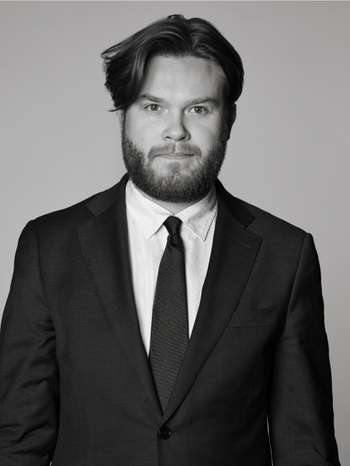Jenny Nyström
"Necken"
Original illustration for the cardboard card, 1896, and the genre card, 1901, Axel Eliassons förlag. Watercolour 10 x 14 cm.
Alkuperä - Provenienssi
Managing director B. Christian Ekberg, Merkur Picture Framers, Sweden.
Thence by descent in the family.
Kirjallisuus
Listed in the Jenny Nyström och Curt Stoopendaal-stiftelsens database, Kalmar läns museum: KLM 32734-359
Muut tiedot
Bukowskis is pleased to present a collection of watercolours by Jenny Nyström with provenance from the frame maker B. Christian Ekberg and the company Ramfabriken Merkur.
In 1899, Bror Christian Ekberg (1876 - 1939) moved with his wife to Sweden from Denmark. Ekberg was a trained master framer, and Stockholm was an attractive destination for skilled craftsmen at that time. Ekberg initially worked with paper and cardboard and started the cardboard factory Merkur, which later became Ramfabriken Merkur. The company also engaged in printing, and Ekberg developed a close collaboration with many artists, including Jenny Nyström. Many payments were made through exchanges for art, which led to the establishment an art shop on Drottninggatan 95 in Stockholm. There, art was sold, as well as works of art and furniture. The location on Drottninggatan was considered far enough from the city centre that for a time, they could rent the premises at no cost. The shop continued to be run by Bror Christian Ekberg's descendants until the building was demolished in 1961, when they moved to smaller premises on Adolf Fredriks kyrkogata. Eventually, the next generation retired, and the firm was sold. Bror Christian Ekberg's examination masterpiece and much of his work are still preserved in the family today.




































